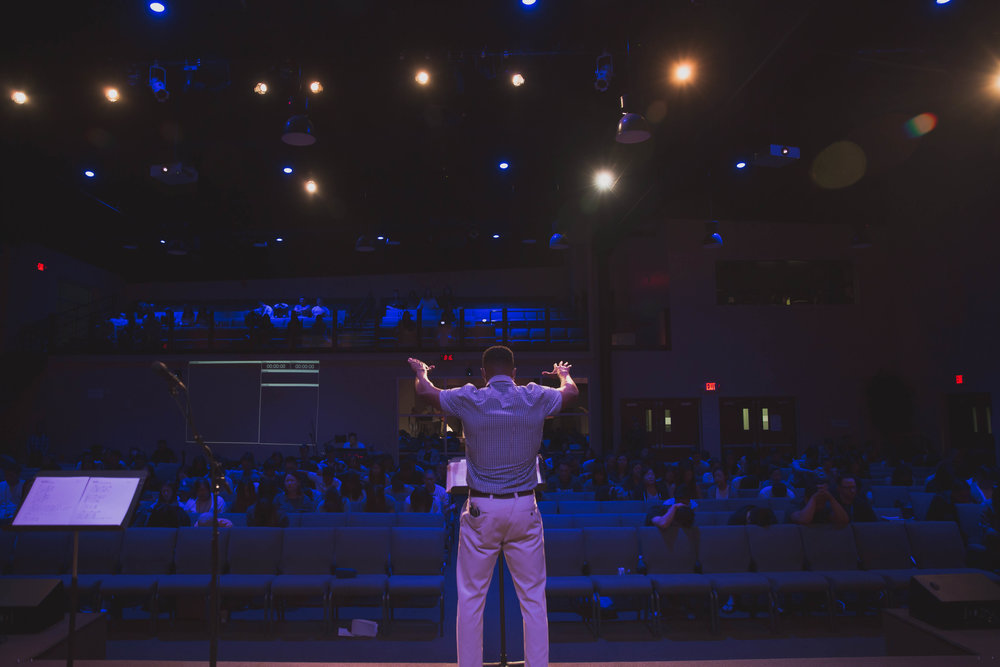If you’re like me, you might have just finished celebrating “Pastor’s Appreciation Month” at your home church. Throughout this past October I was able to witness well-deserved outpourings of love and appreciation for a position that often receives more criticism than encouragement, and it got me thinking about how we treat the spiritual authorities in our lives. As I reflected on my own heart and feelings, I realized that we’ve come to a place where, because of our past experiences and backgrounds, we have created barriers in between us and those whom God has called to be our leaders.
Why We May Have Trouble With Authority
I grew up in the first-generation Korean church, where the pastoral position was almost deified. Having the pastor over at our house was considered an extreme honor, and whenever we stood in line to eat, the head pastor would always get to go first. Many in our generation grew up with this hierarchical structure, and this came at a cost. Some of us suffered the consequences (abuse of power, in-fighting, church-splits, etc) and have decided to do a complete 180-degree turn on how we view our authority figures.
What’s even worse is that even outside of our local church contexts, we see abuses of power. It’s not an uncommon thing to hear about another failure of a government official, a famous pastor caught in a scandal, or an abuse of managerial authority in our workplace. Sin runs rampant in all arenas of our lives, but we often see the harshest consequences of sin in positions of power.
Because of this, we find ourselves judging those in positions of authority, like our pastors, more harshly. In other words,I believe we’ve swung too far in our critical approach to pastoral leadership. We are so quick to make sure that all our leaders are kept in check that we refuse to give them the authority to speak into our lives. Hebrews 13:17 says “Obey your leaders and submit to them, for they are keeping watch over your souls.” But many times we find ourselves shutting the door on well-meaning pastors from doing their job because of our past experiences.
Why This Affects Our Pastors
I am realizing that one of the most painful experiences any person of leadership can go through is the realization that he or she is separate from others. Of course, I’m not talking about when people in authority abuse their power and purposely try to put themselves before others. I’m talking about the kind of experience pastors may feel when they realize that people are slow to show them grace because they have been placed on an unwanted pedestal.
But pastors are fellow believers and sinners just like us. They are prone to wander. They get tired. They have to fight to believe in the truths that God has promised. They are one of us.
Secondly, pastors carry heavy burdens. Now that I’ve been around many of them, I realize that pastors do much more than meetings and sermon preparations. There are administrative burdens of ironing out details for hundreds of congregation members. There is the spiritual burden of balancing the handling of God’s word and the desire to be Biblical and relevant in delivering their messages. There is the emotional burden of thinking of and caring for the souls of their congregations. When we as congregational members start to realize the hardship of pastoral ministry but also the humanity of our pastors, we are taking steps in honoring them and loving them.
We Must Exhort and Encourage
Hebrews 3:13 says “Exhort one another every day, as long as it is called ‘today,’ that none of you may be hardened by the deceitfulness of sin.” The best thing that congregation members can do for our pastors is to view our leaders in a healthy way. The worst thing we can do is view our pastors as spiritual robots who have no room to fail. Yes, we have the Biblical authority to keep our pastors accountable in their duties, but let us not forget the Biblical commands to love our neighbor and to show grace to those around us, especially to our pastors.

